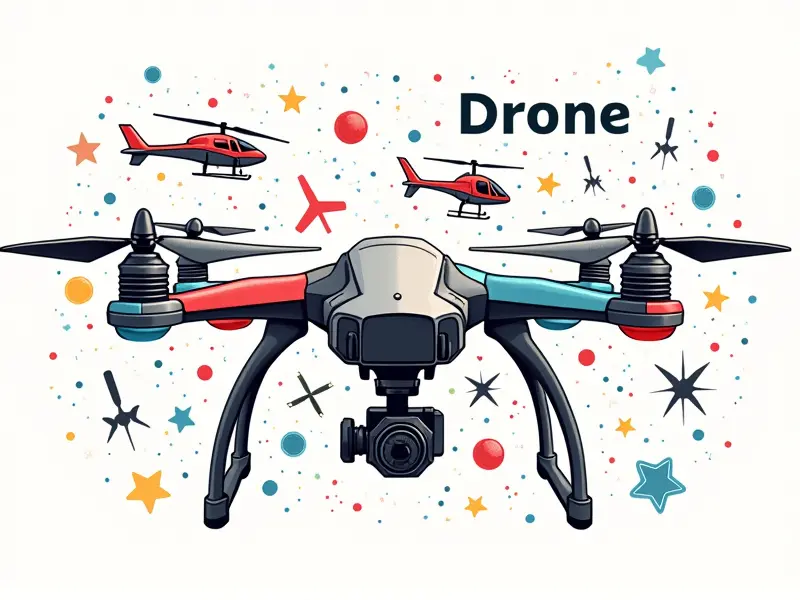Do I need a transmitter?

Why Every Pilot Needs a Transmitter
When it comes to remote control (RC) flying, the transmitter is an indispensable piece of equipment. It serves as the primary interface between you and your aircraft, allowing for precise control over flight dynamics such as throttle, pitch, roll, and yaw. Without a reliable transmitter, even the most skilled pilot would struggle to maintain control and maneuverability during flights.
Must-Have Features in Your Transmitter
Selecting the right features is crucial when choosing an RC transmitter. Key elements include:
- Built-in Trainer Port: This feature allows a second pilot to control your aircraft, making it ideal for training sessions.
- Versatile Model Memory: The ability to store multiple model setups ensures you can switch between different aircraft effortlessly.
- Customizable Switches and Trims: These allow for personalized adjustments based on your specific flying needs.
Understanding the Role of a Transmitter in RC
The transmitter plays a pivotal role in RC aviation by transmitting control signals to the receiver installed in the aircraft. This communication is essential for executing maneuvers and maintaining stability during flight. A high-quality transmitter ensures that these signals are transmitted accurately, leading to smoother and more responsive flights.
Top Reasons to Invest in a Quality Transmitter
Purchasing a quality transmitter offers several advantages:
- Enhanced Control Precision: High-end transmitters provide finer control over your aircraft, allowing for smoother and more precise maneuvers.
- Battery Life: Advanced models often come with longer-lasting batteries, reducing downtime during extended flying sessions.
- User-Friendly Interface: Ergonomic designs make it easier to operate the transmitter, even in challenging conditions.
Benefits of Upgrading Your RC Transmitter
Migrating from a basic model to an advanced one can significantly improve your flying experience. Some benefits include:
- Improved Range and Signal Strength: Enhanced transmitters offer better range, ensuring reliable control even at greater distances.
- Advanced Features: Newer models often come with additional features like telemetry data transmission for real-time aircraft diagnostics.
The Importance of Choosing the Right Transmitter
Selecting a transmitter that suits your needs is crucial. Factors to consider include:
- Type of Aircraft: Different types of RC planes, helicopters, and drones require specific control configurations.
- Budget: While high-end models offer superior performance, there are affordable options that still provide excellent functionality.
Beginner's Guide to Selecting an RC Transmitter
If you're new to the world of RC flying, choosing your first transmitter can be daunting. Here’s a step-by-step guide:
- Determine Your Needs: Consider what type of aircraft you plan to fly and how often.
- Budget Allocation: Decide on the amount you're willing to spend, keeping in mind that higher-end models offer better performance.
- Research Reviews: Look for reviews from other pilots who have similar requirements as yours.
What Features Should My New Transmitter Have?
The features you should look for depend on your specific needs. Consider the following:
- Channel Count: More channels offer greater flexibility in controlling multiple servos and functions.
- Built-in Trainer Port: Essential if you plan to train with a buddy or instructor.
How a Good Transmitter Enhances Your Flight Experience
A high-quality transmitter can greatly enhance your flying experience by providing:
- Smooth Control: Precise control over aircraft movements ensures smoother and more enjoyable flights.
- Reliability: A robust transmitter minimizes the risk of signal loss or interference, ensuring a safe and uninterrupted flight.
Navigating the World of RC Transmitters
The world of RC transmitters is vast and varied. Here are some tips to help you navigate through:
- Stay Informed: Keep up with industry trends and advancements in technology.
- Talk to Experienced Pilots: Seek advice from seasoned pilots who can offer valuable insights based on their experience.
Top Tips for Selecting an RC Transmitter
To make the best choice, consider these tips:
- Compatibility: Ensure that your transmitter is compatible with your aircraft and other equipment.
- Support and Warranty: Look for manufacturers offering good customer support and warranty services.
Conclusion
In conclusion, investing in a quality RC transmitter is essential for any pilot looking to enhance their flying experience. By understanding the role of a transmitter, considering must-have features, and selecting the right model based on your needs, you can ensure that your flights are safe, enjoyable, and rewarding.

